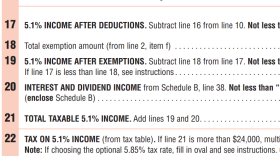With the new year comes a new tax code, and some nonprofits are concerned changes to the tax law could mean fewer donations in 2018.
The new regulations make it harder for people to write off charitable donations, since the standard deduction will be approximately doubled.
That could be a problem for The National Ronald K. LaBrecque, Sr. COPD Fund, a Chicopee-based charity founded a few months ago, and accepts donations of old cars, Ronald LaBrecque, president of the foundation, said in an interview.
LaBrecque said he’s worried that fewer people will donate old cars, since they won’t be able to write it off their taxes.
“It’s going to have quite an impact,” LaBrecque said. “Instead of donating a $2,000 to $5,000 car… they’re going to get a trade-in now.”
Jim Klocke, head of the Massachusetts Nonprofit Network, said his members kept a close eye on the tax bill, as it made its way through Congress. Now they’re scrambling to pick up last-minute donations that are still deductible under the old code.
“They’re encouraging (donors) to front-load 2018 donations to 2017,” Klocke said. “It’s an education process; you have to educate nonprofits, you have to educate donors, and then you need to help people turn around their contributions quickly.”
About 90% of the approximately 700 nonprofit network member organizations rely on personal donations, Klocke said. In order to maintain current donation levels, he predicted, they'll do things like publicly recognizing more donors, and encouraging people to donate larger amounts less frequently.





